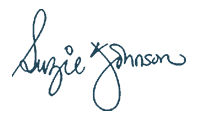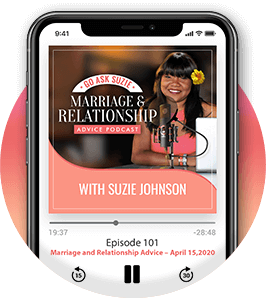Currently, a Google search on “infidelity” shows 6,790,000 results on this topic.
Chances are, you’ve probably read a good amount of “How to tell if your spouse is cheating” or “What to do if you suspect your spouse is cheating” articles.
You will find that this one is a little different.
My approach to detecting, preventing and surviving infidelity is a bit unusual by most so-called conventional standards.
First things first…
Everyone is innocent… until proven otherwise.
Suspicion is NOT proof. Finding “clues” and NO proof is circumstantial at best. And as reliable as your intuition may be, it’s still NOT proof.
Circumstantial “evidence” isn’t enough to convict in a court of law, and it shouldn’t be enough to convince you either.
One of the biggest mistakes I see people make against their spouse is accepting “suspicious behavior” as proof of unfaithful behavior.
Jumping to conclusions or allowing the jealousy demon to whisper in your ear will only torture you.
The key is to stay calm and stay in the present. Like any good police detective, you have to be patient — to watch, wait and observe. You have to become the “lead detective” in your own life.
The only way to achieve this kind of rational observation is to keep seeing your partner AS innocent, until proven otherwise. Sometimes it takes time for the truth to reveal itself. Trust in this process and know that you’ll be okay either way.
Expect the best, while preparing for the worst.
Most people do just the opposite.
They don’t prepare at all.
They just expect to find the worst and jump ahead of everything. The secret is to reverse this order of importance. Expect the best behavior from your partner. Expect they’re behaving honorably behind your back. Expect they’re keeping their promises. Expect they want to live impeccably, and TELL THEM this is what you see and expect in them.
I’ve seen this work wonders in many relationships!
Even when a spouse may have been tempted or thought of being lured into temptation, they find themselves wanting to live up to their partner’s trusting “vision” of them.
Acting contrary to this image of impeccability no longer feels right.
Also, by doing this, many wayward partners have broken down and confessed to some kind of infidelity — be it emotional, physical or otherwise. This kind of self-directed admittance is always the best, because the chances of healing and making a breakthrough are substantially higher.

While it’s true that you always want to expect the best of yourself and your partner, you must also be practical and prepare for the worst-case scenario.
“Suzie, how do I prepare for the worst?”
By being willing to ask yourself the tough questions and being just as willing to hear the truth (no matter what that may be).
On a clean sheet of paper, draw two columns.
On the left side…
Make a list of your worst fears.
For example: He/she falls in love and leaves. He/she gets HIV and brings it home to you. You become a struggling, single parent. You end up alone. You feel humiliated, etc.
On the right side…
Re-frame all your fears into something positive.
For example: Next to your fear of being abandoned, you might write, “Because I have family and friends to count on, it’s impossible for me to be alone.” Or next to your fear of being humiliated, you could write “I’ve done nothing wrong. I will not accept shame.”
Why is this worksheet important?
I’ve discovered that most people rush into confrontation and/or hire a private investigator to spy on their partner, trying to get proof without first being emotionally ready to deal with the truth.
I’m convinced that taking time to face your fears gives you the necessary power and self-confidence to handle whatever emerges.
If you feel a strong suspicion that your partner is cheating…
Do yourself a HUGE favor and DO the emotional worksheet ahead of time. You need to get a grip on your fears, so they don’t blindside you.
The more they have to lose… the more they have to lie.
Here’s the reality of infidelity:
It’s not the “sex” or loss of attention that hurts the most.
It’s the deception.
YOU confront… and THEY deny. YOU cry, beg, and plead for the truth… and THEY lie. You promise to work it out, to be kind and patient and NOT to judge them, and yet THEY still lie.
Well, there’s good news and bad news about the lying game.
The bad news is this: the more a person has to lose, the more they have to lie to cover up. Lying (just like denial) is a tactic to protect against the threat of emotional pain.
In other words…
The majority of liars lie to protect themselves from being hurt.
To them, it’s a self-preservation technique. Am I saying that lying through your teeth to save yourself the headache of owning up to your actions is excusable?
Perish the thought!
What I AM saying is that lying (when you have a lot to lose) is a standard defense.
It’s not the best choice. It’s not the strongest choice. It’s simply the lazy and cowardly choice.

Once you’re aware that lying is a defense mechanism, it frees you from ever being trapped in a cheater’s lies.
You can see “through” them, rather than trying to understand them. You can condemn the “lie” and not the liar. You can afford to be gracious once you see it as a “weakness”, rather than as a personal attack against you.
If your partner is cheating, then he or she is lying. Not just to themselves, but to the rest of their world.
Now, you may be thinking to yourself: Suzie, won’t they be getting away with these lies?
No, not at all.
There’s a high price to pay for lying. It robs people of their own sense of personal power. It steals their inner joy and destroys their feeling of freedom and self-respect. It almost always eventually leads to feelings of isolation and loneliness.
The universe you and I live in continually seeks to balance itself. Deception NEVER fulfills the deceiver. Lies ONLY trap the liar. There are absolutely NO REWARDS in heaven or on earth for lying to yourself or others.
The ultimate price for lying and deceiving others? Losing your own happiness (a pretty hefty price, don’t you think?).
CREATING A SPACE FOR HONESTY
People ask me all the time… should they hire a private detective, put spy software on their partner’s computer, or engage in other “covert” infidelity detection methods?
Here’s my answer:
In certain rare instances, all of those techniques have a place. However, I’m a firm believer in taking the high road whenever possible.
If you believe your partner is being deceptive and you use deceptive methods to discover the deception, then I have to ask… who is more deceptive?
About Becoming A Deception Detective
The first rule to take into consideration is that ALL cheaters WILL lie. After they have finished lying … they will promptly start lying again. It’s not personal. It’s just the nature of the beast. So, how do you go about finding the truth… when so many lies are the norm?
To catch a cheat, it may first look like you must fight fire with fire (deception with deception). Hold on. Before you take the low road, know there IS another way.
I call it “preparing a space for honesty”.
This plays a big role in the marriage wellness coaching program that I provide for couples who are facing this kind of uncertainty. It’s based on the premise that honesty is a two-way street:

You let your partner know it’s “safe” to be honest.

You let your partner have “amnesty” to be truly honest.
Many of us say we want our partners to be totally honest — so long as they say the things we want to hear. BUT the moment they don’t, we react and instantly fly into a rage.
Here’s a good example of what I mean by that:
My brother went off to college in Connecticut. My mother, who lives in New York, insisted that he call her often to “check in”. When he did, she would ask him questions about what he did the night before, and what time he went to bed. He would only tell her what he thought she wanted to hear. Something like, “Mom, we studied most of the night and then went to sleep around 11 o’clock.” My mother would hang up the phone happy with the report.
But when he talks to me, it’s different!
My brother is a lot younger than I am, so we’re more like best friends than siblings. I’ve made it so that I’m a person who’s “safe” for him to be honest with. This means I get the REAL story (i.e., he and his buddies were out partying in Hartford until they closed the bars about 2 a.m.). See the difference?

If you want to hear the truth, you must be able to handle the truth.
Most people cry foul when I explain this concept to them. They say you should tell the truth regardless of the consequences.
While I agree that this would be ideal, it’s just not realistic.
People will only be as honest with you as you allow them to be.
The reason most people lie?
To protect themselves from the threat of danger or emotional pain. So, what if we removed that threat? What if we made it so that speaking the truth created HIGH positive rewards? How much more likely are they to be honest… voluntarily?
A lot more!
You see my point?
One last thing…
Do you feel you truly have reasons to suspect your partner is having an affair?
If the answer is “yes”, then please don’t deny your feelings.
Don’t bury your head in the sand.
Time isn’t on your side. After years of watching how the dominoes fall in the area of infidelity discovery, I would say chances are very good that your feelings are correct. But what can you do about it?
There’s got to be a better way than spying on your partner or going out and finding your own private detective. I believe it’s better to get to the truth voluntarily. Don’t you?
For more help on inspiring more honesty in your relationship, read my article about becoming a transparent couple.
Until we speak again…
Remember… Love Wins!

































